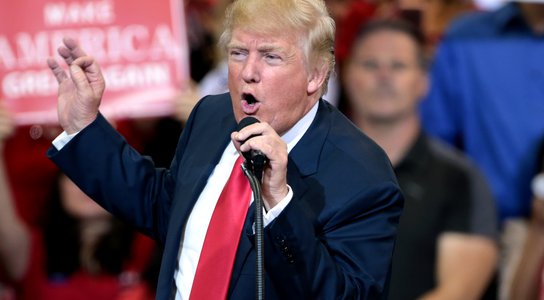President Trump’s decision to withdraw the US from the Human Rights Council is just one example of how far the US is backsliding on the human rights agenda.
The detention of children at the US border and threats to quickly deport undocumented immigrants without due process further underscore the administration’s little regard for human rights. On the world stage, Trump has time and again cozied up to dictators or autocrats – whether appearing to side with Putin when he denied that Russia meddled in the 2016 election, or, prior to that, publicly touting his “very special bond” with North Korea’s dictator Kim Jung Un.
The Trump administration’s retreat on the human rights agenda comes at a time when civic space is shrinking around the world. Repressive regimes are cracking down on civil society organizations that are focused on advancing human rights and exposing corruption and environmental abuses. More and more journalists are killed each year for doing their job.
According to the CIVICUS Monitor, as of March 2018, 56% of countries (109 countries) have closed, repressed or obstructed civic space whereas only 23% (44 countries) have open civic space.
The threats facing civil society are coming from all directions and becoming more sophisticated – they include attacks on journalists and a free media, the intimidation, harassment and arbitrary arrests of human rights defenders, the criminalization of peaceful protests, internet censorship, and the passage of laws that restrict civil society organization’s ability to operate and raise money.
The US government should prioritize this issue by using its significant economic and political leverage to promote an enabling environment for civil society. For example, the US should require through its foreign assistance programs that countries take concrete actions to open civic space and proactively support and protect human rights defenders that come under attack.
As competition for natural resources around the world increases so do risks to environmental and land defenders. Global Witness recently released our annual report showing that 207 defenders were killed across 22 countries, the highest total we have ever recorded. Nearly 4 people were murdered every week in 2017 protecting their homes and communities from agribusiness, mining and other destructive industries.
The latest example of crackdowns on human rights defenders is found in Niger, a resource-rich country in West Africa which is one of the poorest countries in the world. In March and April 2018, 26 human rights defenders were arrested for peacefully protesting against a new finance bill they said would increase the cost of living for citizens.
Among those arrested was Nigerien civil society leader Ali Idrissa, who is coordinator of the Nigerien chapter of Publish What You Pay (PWYP), a global extractives transparency coalition. Idrissa and PWYP Niger have worked for years to root out corruption in Niger’s extractives sector, while also helping communities that suffer from the impacts of water pollution and toxic waste disposal from extractive projects.
The arrest of these Nigerien activists generated global attention, including from US Senator Patrick Leahy who issued a statement calling for their release. While Ali Idrissa and 13 other civil society leaders and journalists were released from prison last week, the remaining defenders are still in jail. Global Witness is calling for their immediate release and for their convictions to be overturned.
This attack on civil society is not just a problem abroad; civil society organizations and indigenous peoples here in the US also face greater challenges. Arbitrary arrests and anti-free speech lawsuits known as SLAPP (Strategic Lawsuit Against Public Participation) and RICO (Racketeering Influenced Corruption Organizations Act) lawsuits are being used to try to silence public interest organizations opposing a pipeline project.
In addition, more and more states have introduced legislation to restrict the right to protest. According to the US Protest Law Tracker, 31 states have introduced anti-protest legislation in 2018, up from nearly 20 states in 2017.
The US has historically played an important role on the global stage to advance human rights and the rule of law, supporting and protecting civil society organizations in their ability to speak out and peacefully protest to hold governments to account. But Trump is undoing much of this progress with his harmful words and actions. This sets a dangerous precedent as it emboldens autocrats around the world to clamp down on civic space even further.
Now more than ever, it is critical that the US reclaim leadership both at home and abroad to reverse this trend of closing civic space and promote the core democratic values that America was founded on.


